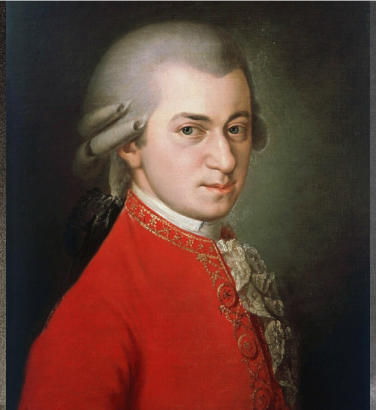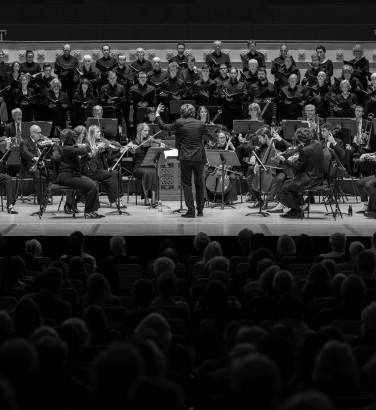
The flute concerto
14 Oct 2024
News Story
SCO Principal Flute André Cebrián (photo credit: Christopher Bowen)
This article is part of an ongoing series this Season focusing on the concerto as written for specific instruments in the orchestra. With contributions from SCO players, we hope these give you some new insight into works you know and an idea of others they would recommend seeking out.
Unlike the viola and cello, the flute’s status as a viable instrument for solo concertos has fluctuated over the course of its existence. Its popularity really took off during the Baroque era, when it was embraced by the wider European aristocracy as a fashionable instrument like no other. While this association may have led to its popularity dropping off as the continent was beset by the outbreak of revolutions from the late 1780s, the writing had been on the wall for some time before this. There are in fact very few flute concertos dating from the Classical period, and although it was firmly established as part of the orchestra, it would not be until the 20th century that the tide would start to turn back in its favour as a solo instrument.
There’s therefore a sizeable gap in the concerto repertoire open to the SCO’s two flautists – Principal André Cebrián and Marta Gómez – when it comes to choosing their favourites, but there are still plenty they particularly cherish. As André points out, “the golden era of the flute concerto was the Baroque”, which boasts so many that a good deal of them are unfamiliar territory, even to flautists. Some of Vivaldi’s are reasonably well-known, but those by Quantz (who wrote over 300, mostly for Frederick the Great, himself a flautist) and Pergolesi tend to get lost in the mix. Marta joins André in singling out CPE Bach’s concertos, and both our players recognise the pair by Mozart as cornerstones of the repertoire – as our Mozart Flute Concerto concerts (13 – 15 November), in which André plays the G major, will attest. The curiosities of the period also include a rare concerto for two flutes by Cimarosa, who was hailed by the French novelist Stendhal (of all people) as “the Molière of composers”. It's also worth mentioning JS Bach's Brandenburg Concertos here, in the fourth of which the pair of recorders are often replaced by flutes, as will be the case when André and Marta play it in our Bach's Brandenburg Concertos concerts (9 - 11 January).
There would be very few flute concertos of any note written in the 19th century: Vilém Blodek’s, the only one highlighted by our players, is so little known that we have been unable to find it on Spotify! The performance below appears to be the only one available on YouTube as more than an audio file.
Carl Reinecke's concerto also belongs to the Romantic era, even if it was written in the early 1900s - a time when signs of change were already on the horizon. Debussy had discovered the potential of the instrument’s mellow lower register in his Prélude à L’après-midi d’un faune in 1894, almost two decades before Stravinsky would exploit this sound to the full in The Rite of Spring’s eerie processions.
The renaissance of the flute may have begun in France, but its popularity soon spread far and wide, helped by the rise of virtuoso players such as Jean-Pierre Rampal, James Galway and (more recently) Emmanuel Pahud. This has resulted in an abundance of new concertos, with our players identifying key works in almost every decade since. Starting with Nielsen and Ibert in the interwar period, we then have pairs of concertos by Jolivet (both personal favourites of Marta’s), Arnold and Weinberg before better-known composers enter the fray in the 1970s and 80s. Rodrigo’s Concierto Pastoral, Bernstein’s “very idiomatic” Halil and Takemitsu’s I Hear the Water Dreaming (“which transports you […] to a completely different universe of sounds”) are all works Marta wishes were better known, while André sets his sights slightly later with Liebermann and Penderecki, whose concertos were both written in 1992. Jumping ahead almost to the present day, Behzad Ranjbaran's 2013 Flute Concerto pays tribute to the ney, a bamboo flute from his native Persia, enriching the instrument's solo repertoire with sounds of a culture still rarely heard in the classical sphere.

Marta Gómez
Credit: Christopher BowenMoving away from strictly concertante works, André and Marta are full of admiration for many composers’ ability to write well for their instrument in other contexts. Bach’s oeuvre is especially rich in this respect, with many flute solos among his sacred works in particular: the Benedictus in the B minor Mass is among the best-known, but there are countless flute obbligatos to be found in the cantatas. Mozart’s flute quartets are also worthy of mention here, being (to quote Marta) “fantastic chamber music repertoire”, as is the impressive amount of music – from Beethoven’s contemporary Reicha all the way to Ligeti – written for wind quintet (flute, oboe, clarinet, bassoon and horn), of which André is especially fond.
Another winning combination of instruments in chamber music pairs the flute with the viola and harp: André expresses a preference for Debussy’s Sonata for this ensemble, while Marta is drawn to Jolivet again, whose Petite Suite she deems “a challenge but also a pleasure for a flautist”. We also find prominent flute solos in Italian bel canto opera such as Donizetti’s Lucia di Lammermoor and Bellini’s Norma, while in orchestral repertoire, Ravel’s Daphnis et Chloé is understandably a hit with both our players. André also looks to Russian composers: his instrument is particularly important in Stravinsky’s Petrushka, and nearly all of Shostakovich’s symphonies include “a little flute concerto moment”.
Shostakovich’s writing for his instrument is so good, in fact, that it is this composer our Principal Flute cites as his prime example of someone he wishes had written a flute concerto. The number of great composers he names in the same breath makes it clear how much a gap there is in this repertoire: in no particular order, he mentions Beethoven, Mendelssohn, Brahms, Prokofiev, Tchaikovsky, Mahler, Bartók, Stravinsky, Dvořák, Schubert, Schumann and Ravel. Of these, Brahms particularly stands out for Marta: she confesses to being "such a fan" of his music, which makes her particularly regret he never wrote any solo music for the flute, whether as a concerto or in his chamber music. In the circumstances, it is just as well that the last century has been so rich in new repertoire for the instrument!
Related Stories
![Three men, the first two in 18th century formal dress (one in black and white, one in a red coat), the last in an old photo, smoking]()
What is a sinfonia concertante?
17 March 2025
We delve into the history of a hybrid genre ...![]()
The SCO Chorus on music for Lent
10 March 2025
With Easter just around the corner, we delve into perhaps the richest (and often darkest) choral repertoire of all ...![]()
The bassoon concerto
3 March 2025
For the last article in our concerto series (for now), we turn to an instrument too often dismissed as the orchestra's resident joker.


